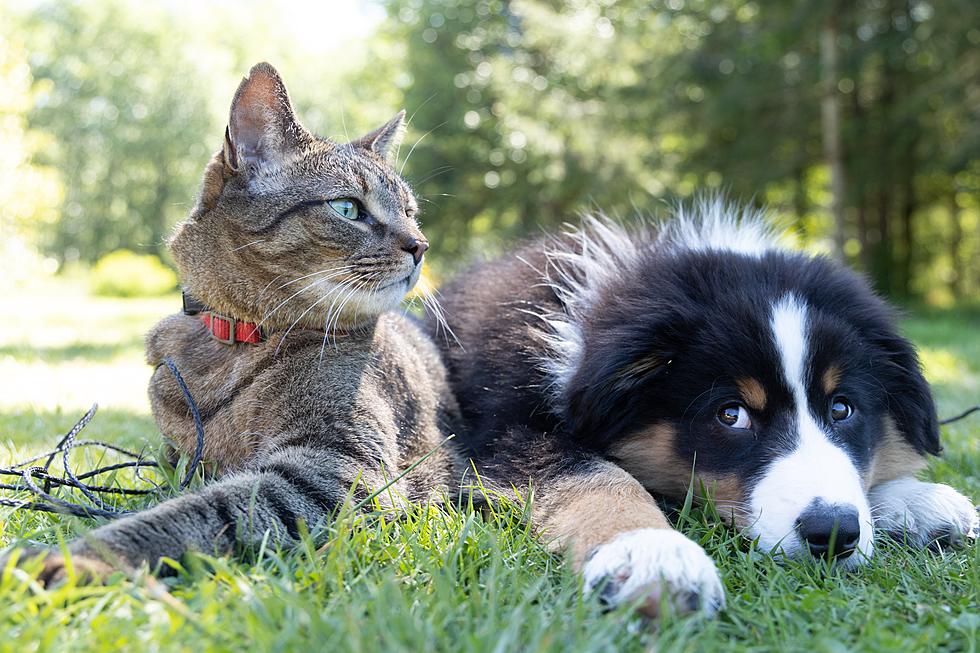
The importance of trap-neuter-return communities in NJ
Trap. Neuter. Return. TNR is the most effective method currently available to reduce community cat populations in a humane, responsible manner, according to The Animal Protection League of New Jersey.
There are at least 150 New Jersey communities that have a cat management program in place, said Sandra Obi, TNR director at APLNJ.
Trap, Neuter, Return is a management protocol that we can do for cats living outside who continue to breed without us interfering with them, she said.
The basic process is to sterilize the cats so they don't continue to breed and grow. The goal of the TNR program is to have zero cats living outside in a community.
"A common misconception is that the Trap Neuter Return program is creating these colonies of cats, or fostering them, or nurturing them and that is not our goal. Our goal is to have no cats living outside in these communities," Obi said.
To achieve this goal is to sterilize the cats and not have kittens show up. Obi said most townships have partnerships with residents to make this TNR program a success. They might start feeding them and providing vet care for them. They might also look for resources to help stop the cat population from exploding in their neighborhoods.
Obi said one thing to keep in mind is that not every cat living in a community needs to be taken to a shelter. They could be pet cats who are just lost. Part of the management protocol is to get pets to their rightful owner. That requires scanning for a microchip.
Some strays are friendly and in need of vet care. They are the ones who should be taken to a shelter so they can eventually find a forever home. But then other cats are aggressive, not friendly, and scared. Obi said they should not be brought to a shelter because they will never be adopted. They are better off outside after being trapped and neutered.
Obi said if you just see a cat once outside, don't do anything. But if you continue to see the same cat every day, do your homework. Find out first if the cat belongs to someone. Don't knee jerk react right away. Many people see kittens and immediately want to scoop them up and take them to a shelter. But again, even with kittens, do some digging and get some information first.
Once it's been determined that nobody is caring for the cat outside and they're not sterilized, Obi said to start feeding them. Then get them into a routine of being fed in a certain place at a certain time. Devise a plan to trap the cat and bring it to the vet so they can be sterilized and immunized against rabies.
"The cat will also get an ear tip which is the top of the left ear gets cut off, just a little bit. It doesn't hurt. So that when they're returned outside, anybody can see them and see that their ear is tipped and they're being looked after," she said.
Trapping a cat is easy, she said. Feed the cat at the same time in the same place every day. This will make it easy to trap the cat. Do not leave the food out all day so as not to attract other animals. She said to leave the food out a couple of hours, then take it away.
Once the cat is accustomed to its feeding time, residents can then devise a plan to trap them. The APLNJ can help residents by allowing them to borrow traps instead of buying one.
"You literally put the same plate of food inside the trap instead of outside the trap. They go in, they eat the food and the trap door snaps shut. It's completely humane. It doesn't hurt them," Obi said.
All steps on how to trap a cat can be found on the APLNJ website.
Once the cat is trapped, taken to a vet, neutered, and returned to the community, Obi said they still need to be cared for outside. This is not a sterilization, then an abandonment program.
Residents should take turns feeding the cats, providing fresh water for them, and shelter, especially in the cold months, and if need be, take them to a vet for future care.
This is not a forever thing, she said. The average life span for a cat that is sterilized and cared for out in the community is roughly 8 years. But it's only two years if the cat is not neutered or cared for daily.
Jen Ursillo is a reporter and anchor for New Jersey 101.5. You can reach her at jennifer.ursillo@townsquaremedia.com
Click here to contact an editor about feedback or a correction for this story.
Best coffee places recommended in Central Jersey
More From 94.3 The Point










